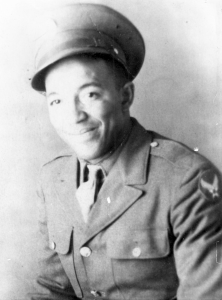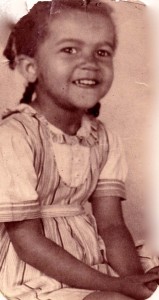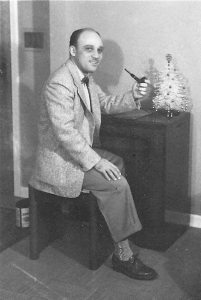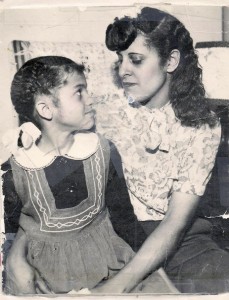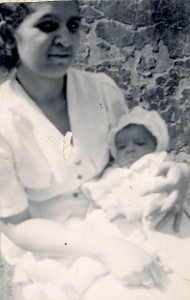Hi Mommy,
What was it like for you to be back in New Jersey busting suds and picking crops, after spending those years in Hartford, Connecticut, learning etiquette, elocution and the other skills essential to becoming a proper bourgeoise? No doubt it was a shock, and not just for you. You loved your New Jersey family and they loved you, but sometimes you just didn’t understand each other, and maybe that was to be expected.
For one thing, your sisters and brothers couldn’t get over the way you talked. Your sister was chuckling about that just recently. South Jersey folks of that generation have their own kind of country drawl, but you had a New Englander’s clipped enunciation. You had a way of saying, “Look at the the dogs!” that sounded more like, “Look aht the dahgs!” making your family double over with laughter because they had never heard anyone speak that way. It hurt your feelings, but then, lots of things hurt your feelings, and you could say things that they found just as cutting.
Not that there weren’t good times there. Along the White Horse Pike, between Camden and Atlantic City, and over the Ben Franklin bridge to Philadelphia, there was a world to explore. Near as I can tell, your Mom, Eileen, moved you and the kids around, depending on the most affordable and livable arrangements available at the time. Mostly you were in Chesilhurst, near your grandfather Ashton’s family, and not far from where your father’s brother built a home.
And your dreams of high school proms, high school dating, and eventually, college receded into heartbroken imaginings.
Start in South Philly, a place that you all visited on occasion. Eileen’s father, John Henry Farrell, had his own “Sanitary Barber Shop,” as his business card said. John, Jr. was the first colored elevator operator for one of the big department stores downtown. And his brother, Wendell was a mechanic in the Air Force. Sometimes Aunt Gladys came to visit, and Eileen would get together with her and sisters Lynn and rarely, Edna, who moved to Elizabeth early on. Lynn was something of a glamour girl and you all got to be friend with her kids, all being around the same age.
Cross back over the Ben Franklin to Camden, either on the bus in a car like that big pink Studebaker your Mom used to drive. Camden was a working class town, but it was in much better shape than it is now. There was plenty of work at the Campbell Soup plant, and if some folks had to shop at the Goodwill on Broadway, there was also a Tiffany’s.
But if you were young, black and looking for fun in the 1950s, the action was down the White Horse Pike, in Lawnside.
A former stop on the Underground Railroad, Lawnside was the first self-governing African American community north of the Mason-Dixon line. The Peter Mott House there is now a historic landmark. In the late 19th century, it was the childhood home of Jessie Redmon Fauset, the novelist, poet, teacher and editor credited with launching the publishing careers of such leading lights of the Harlem Renaissance as Langston Hughes and Countee Cullen. For the last few years, they’ve celebrated Jessie Fauset Day in Lawnside with poetry competitions and historical observances. But in the 50s, Ms. Fauset had moved back to Philadelphia for a few years of genteel retirement before her death, in 1961.
By the 1950s, the striving town of Jessie Fauset’s youth had become better known to local African Americans as a place for barbecues, picnics and dancing. Jack Brady’s Dreamland Cafe saw its heyday during your childhood, boasting the likes of Nat King Cole and Sarah Vaughan. I never heard you all talk about Dreamland or the Cotton Club. But I did hear tell of the Whippoorwill and even as late as 1975, you all were still going to Loretta’s Hi-hat for family wedding receptions.
Daddy tells me there was a place next to the Tippin’ Inn where you go could for food and dancing if you weren’t yet of drinking age. That’s where he and his brothers used to go before he got drafted into the Army during the Korean War. He was going with your older sister when he got drafted. Then another man took your sister to the altar while the man who would become my father was doing his bit for Uncle Sam. It was later, after he got back, when he met you.
In the meantime, your older brother and sister were hitting the Hi Hat and you and your closest brother E were winning dance contests at some of the local joints. Not that you all even needed to go out to have a good time. Even in my youngest childhood, I remember how you and your Mom and brothers and sisters would get together to eat, play pinochle and dance.
Grandmom cooked for white folks on the Main Line, I recall, but her family menus were strictly down home. Ham, fried chicken, macaroni and cheese, candied yams, string beans, potato salad, cornbread, apple pie, sweet potato pie, white potato pie, tomato soup cake — there was always something good in Mom’s kitchen. Maybe somebody put some music on a record player or maybe it was just a radio. The bop was the dance of the day.
Maybe it was at one of those contests that you met Thornton James “Pookie” Hudson from the Spaniels. Their signature tune, “Good Night, Sweetheart,” had come out in 1954 when you were only 15. You told me that the two of you dated for a time. Given that Pookie was five years older and touring regularly, it’s likely that the relationship was more serious on your end than his. Nonetheless, you told me that you lost Pookie to a girl named “Tina” — a girl who so captured his heart that he wrote a song about her that the Spaniels recorded. You played the song for me; it mostly consisted of Pookie wailing her name.
I got an email from a cyberfriend when Pookie died in January, 2008. I thought about telling you, but I didn’t want to make you sad. I suppose you know by now.
Another time, you told me you met Arthur Prysock, and even sang backup for him. I never did hear the whole story, but I got the impression it wasn’t a serious thing — maybe even that he just let you get up on a stage with him one night and sing behind him. Who knows? It was one of those things you would say and leave unexplained, the same way you would say that we were related to Duke Ellington and Billie Holiday. Who can say?
From what I’ve read about Lawnside in those days, it was a place where everybody mixed with everybody, so hanging out with big stars such as the Spaniels is not as exotic as it might seem to us today. African Americans flocked to Lawnside because they weren’t allowed to be anyplace else. Not long ago, Dottie Smith, a singer who played the Lawnside clubs in those days, told an interviewer:
“On Sunday, a lot of people would leave church and go right over there for the rest of the day,” she said. “That’s why it all felt so much like family. There were grandmothers and kids and musicians and shriners and everybody from all walks of life. Blacks didn’t have a Blue Book or a Country Club. Lawnside was where we went. It cost practically nothing to enjoy yourself. I remember in Philadelphia there used to be this weekend saying that it was time to ‘go down the ridge and over the bridge,’ which meant heading out for Lawnside and the clubs and all.”
You were popular with the fellas, I’m told. At your memorial service, a man who had grown up with you, whom I only knew through your church, talked to me about your beauty with all the wistfulness of an old man remembering his first schoolboy crush.
This was your life: work, child care, hanging out with friends on your off hours. School was not part of the picture for you or your peers. Dropping out of high school to help the family was pretty common in the 1950s. Heck, it wasn’t unusual to meet kids who had bailed on elementary school. Nobody was sending truant officers out to make sure poor black kids went to school.
The jobs available to blacks in Camden County didn’t require more than an elementary school education. They were jobs that needed strong backs more than good brains. Also, you had to have a high tolerance for being called “boy” or “gal.” And never talk back to a Jersey cop. People warned each other, “They’re as bad as the ones in Mississippi,”
But you had seen another world – a world where a black woman could get an office job, instead of having to clean a white woman’s house or wash her clothes. A world where little black girls took ballet lessons and dreamed of going to college. A world with doilies and flowers and husbands who save up their money to buy you a string of pearls. A man who, as you were fond of saying later, “brought something to the table.”
That was the world you wanted. Sometime in 1956, when you were 17 and he was 24, you decided that my bookish father was the man most likely the partner you needed.
Yes, Ma’am. I’m going to get some rest now.
Love,
Kim

